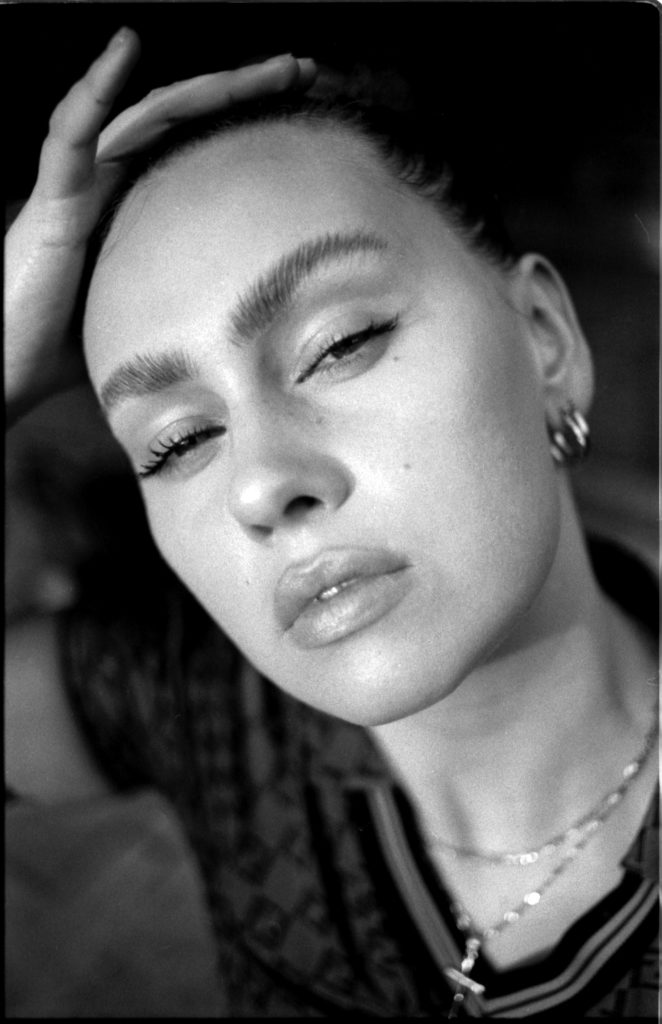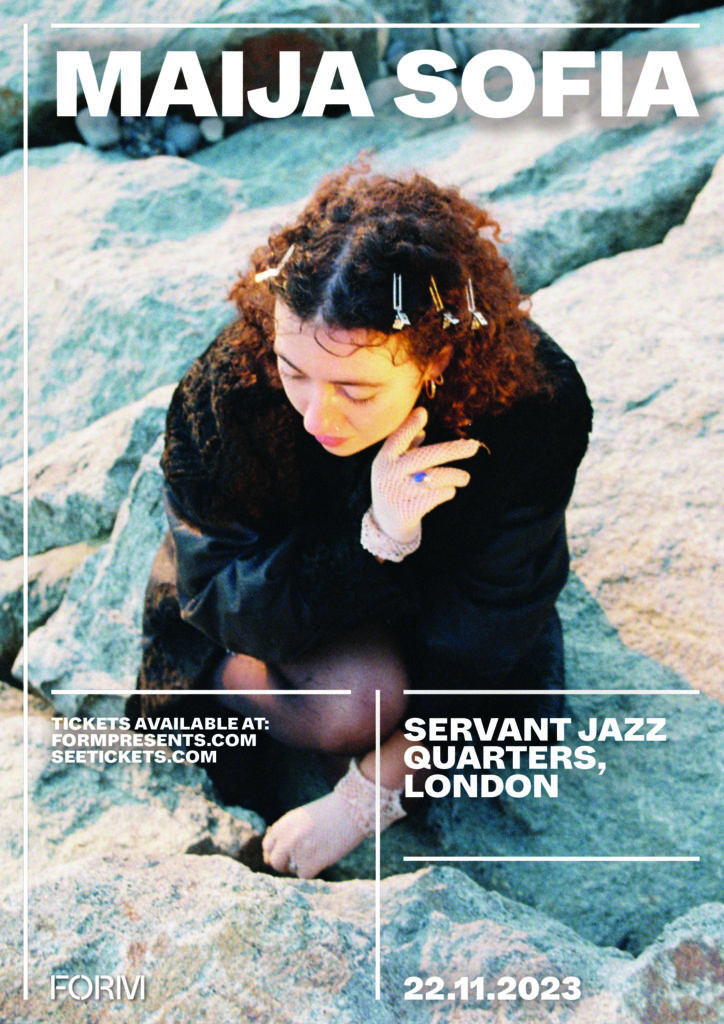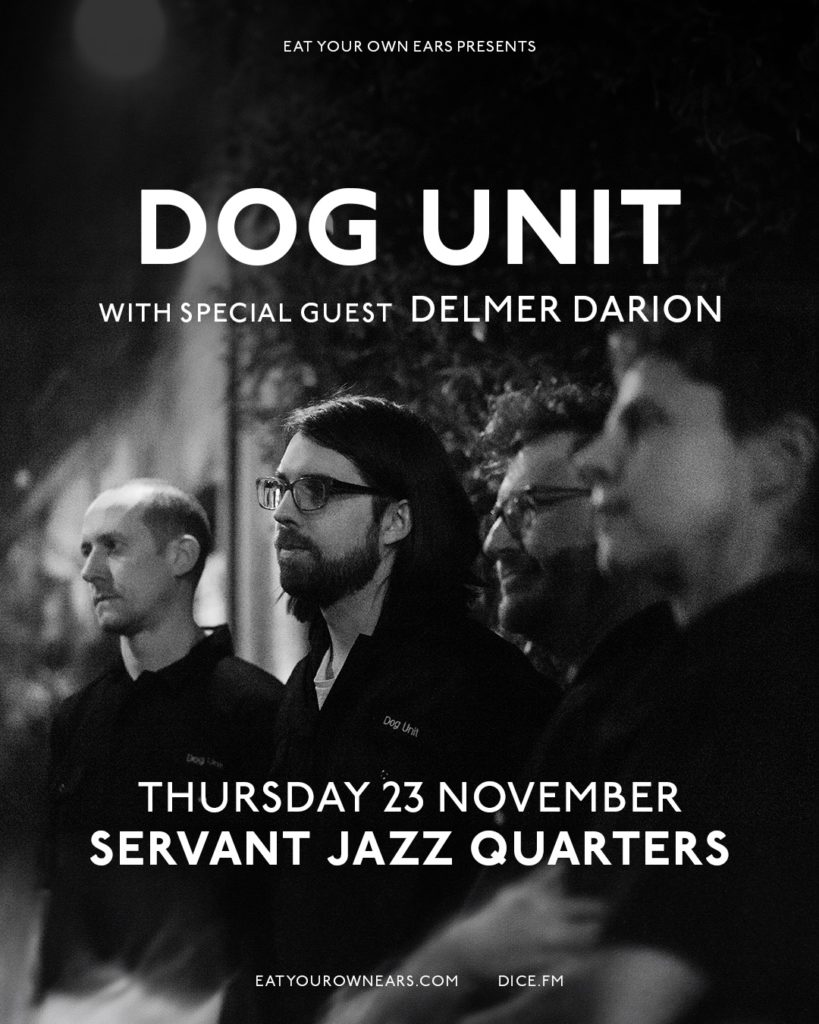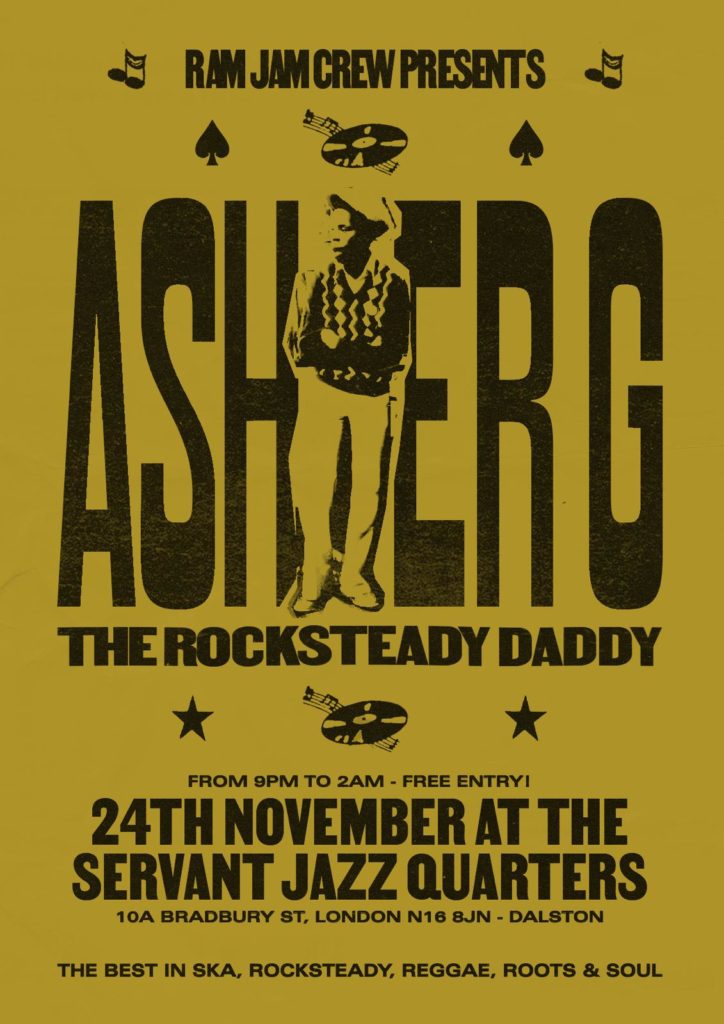
Sasha Keable
asha Keable spent most of her childhood in South London glued to the stool of a piano. It was a terrible piano, ostensibly speaking. Her dad had found it in the free ads section at Morrisons and, due to the condition, the previous owner didn’t dare ask for money – they just wanted it gone. It was jangly and out of tune, in a way that made everything you played sound like a honky tonk cover. But to Sasha, who never thought her family would ever be able to afford one, it was the greatest sound on earth.
Sasha had grown up in a diverse musical environment. Her mother – strong, passionate, Colombian – would play latin music in the house, and Sasha would often go to reggaeton dancing classes. Her dad, on the other hand, was into metal, rock and soul. There wasn’t a television at his house, so whenever Sasha went round he would print off the guitar tabs for whatever they were into at the time; Aerosmith, Seal, Stevie Wonder, Donny Hathaway. He would play guitar and Sasha would sing along. That was how everyone discovered just how well she could sing, including Sasha. At 14, she went to Brit School, where her songwriting imagination exploded, and her voice matured into a deep, luscious, and soulful song.
For Sasha, music was an escape from childhood battles with her mental health. She frequently experienced bouts of anxiety and depression, and had therapy for self-harm from the age of 7. On the occasions that she felt herself falling into a black hole, her mother would take her into the garden and together they would scream as loud as possible, “letting all our thoughts out into the universe”, as she would say.
All of Sasha’s dreams came true when she was signed to Polydor on a five album record deal, at the staggeringly young age of 17 years old. Her first two EPs (‘Black Book’ and ‘Lemongrass and Limeleaves’) were an honest and candid collection of songwriting that tackled raw heartbreak, and showed her prowess for unpacking emotions as naturally as she crafted melodies. A breakthrough hit came in the shape of “Voices”, a collaboration with Disclosure (which achieved 12 million Spotify streams), and before long Sasha was being excitedly whispered about alongside names like Sam Smith and Adele. For most people, that is where the Sasha Keable story ends. She disappeared. She flunked it.
The truth, as always, is far more complex. We all know that behind the branded gigs, Spotify streams and Instagram posts, the music industry can be a cruel and ugly environment, but rarely do we hear the stories of those it spits out. As Sasha’s profile rose, so too did the attention of those around her, and she quickly began to feel controlled and surrounded. She found herself pushed into positions that made her feel uncomfortable, and represented in ways she never wanted. The idea of Sasha Keable was being turned into something she wasn’t. Her music became a stalemate compromise of what she envisaged and what those around her wanted, resulting in final product that nobody loved.
“It’s hard to stand up for yourself when you’re a young woman,” she says. “I was 17 when I got signed. You have these big industry men who are supposed to protect you and know more than you. They were always like: No no, calm down little girl, let the big men tell you how it’s going to play out. It’s hard to be like: no, actually, I’m going to do this.” Her childhood dream of becoming an artist began to crumble around her, taking a huge chunk of her personal identity with it. She became bitter and angry, blaming herself for being manipulated. In the middle of it all, her step dad passed away in a car accident, and it sent her into a deep spell of anxiety and depression. The music stopped coming.
Sasha withdrew from the limelight, eventually ending her relationship with her management and label. She carried on writing the entire time, drawing inspiration from everything that was happening to and around her. She began to work on herself, and for the last three years has been processing everything that went wrong, slowly re-building her artistic identity. “I had to strip everything back and go back to basics,” she says. “I kept asking myself: what would 15 year old Sasha do? What would I have done back when it was just me and my piano, writing tunes, when nobody gave a shit.”
She took control of her destiny and started arranging her own sessions, a far cry from the days of being forcibly sent round the houses to every producer in London. She made friends with a pianist called Junior and songwriter called Jay. For an entire summer they spent every day in Sasha’s mother’s dining room; writing music, cooking, hanging out. “It took away all of that horrible bullshit that was surrounding me” says Sasha. “Nobody can hurt me when I’m in my mum’s house. That summer changed everything for me.”
She didn’t want to make the same mistakes again, and endeavoured to own all of her new music. She used money left to her after her step-dad’s death to fund a week of recording with a full band. Ten songs were packed into seven days, and the results were deeply soulful and radically personal. The lyrics were blunt and honest, fuelled by the passion and aggression of her Colombian upbringing, and sang straight from the heart. Polished sheen was ditched in favour of instrumentation that felt alive and organic. Sasha executive produced everything.
“It was so important to me to make music that felt right,” says Sasha. “I never wanted to be a pop star, I just wanted to be a soul artist who makes cool shit and lives their life. If you’re faking it, people can see it. They know when someone is trying to be someone they’re not. Now, I’m not willing to compromise one bit. I’m here to make the stuff I wanna make. If it doesn’t ‘connect’ or whatever, it doesn’t matter. I just want to know that I made something I loved.”
Sasha’s songwriting has ga in the last three years – her lyrics always seem to be either asking or answering questions. This idea of pretending to be something you’re not is a topic she tackles on forthcoming song, “That’s The Shit”. Packed with jazz inflections, fluttering melodies and pitch shifted guitars, the track is led by Sasha’s brassy vocals that unpack all the different types of fronts people put on for others. At the opposite end of the emotional spectrum is “Treat Me Like I’m Yours”, a candid and tender jam about something every couple in the world faces at some point in their relationship: what happens when the sex dries up?
In late 2017, Sasha was approached by Jamal Edwards to speak about her struggles with mental health in his new documentary on the topic. She was unsure about taking part. Until mid-2017, she hadn’t revealed her ongoing battle to anyone. Even after the interview, she considered asking Jamal to cut her from the final film. “I didn’t want people to see me as damaged goods before I’d even tried to do anything again,” she says.
“And then it dawned on me; I realised I was doing it for a reason that was bigger than me. It’s important that other people know that it happens. I’ve watched too many people around me drown under the pressure of life. So, I’m not gonna sit here and be positive all the time, just to make people feel comfortable. If you feel uncomfortable when people are honest then that’s your problem.”
If you listen carefully to Sasha’s song “Opening Arms”, and focus your ears less on the lyrics and more on the instrumentation, you’ll notice that some of the piano parts are ever so slightly out of tune. It was done intentionally by Sasha to recapture that beautifully eerie sound of the rickety old piano from her childhood. “To me,” she smiles, “it just sounds amazing.”


